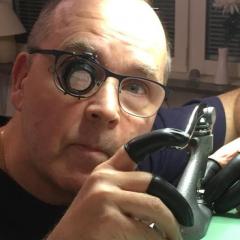Olive oil used for burnishing pivots.
-
Recently Browsing
- No registered users viewing this page.
-
Topics
-
Posts
-
By Neverenoughwatches · Posted
The two measurements of particular importance wound be the height and the strength, the length would obviously correspond with the increase/reduction of half mm of barrel diameter. There is a big difference in price considering that the more expensive one is the shortest. The longer one might be ok ? But then it is taking up more room in the barrel, might it effect the unwinding ? I wouldn't have thought so for just that small amount. Ideally a pro might reduce the longer one to suit. But there is some information that might help, do you have the one that was fitted to measure up, though not necessarily the right one. -
Hi, I need to order a new main spring. According to Cousins website the correct spring is 1.60 x .10 x 300 x 9 non-auto but it is not available. The two closest are 1.60 x .10 x 280 x 8.5 @ £17.50 and 1.60 x .10 x 340 x 9.5 @ £7.50. I’m tempted to go for the 9.5 for a couple of reasons. Any reason that’s likely to be a bad decision? Thanks.
-
By Neverenoughwatches · Posted
Its been a while since posting anything on this one. This is something i actually bought today, i needed a little pick me up after my past two weeks of stress. I particularly wanted the sliding pin vices around the top center area. But there are lots of other goodies to pick out if anyone wants to guess or inform . Thank you. -
By Neverenoughwatches · Posted
Refreshing to have a lady's approach to watch repair , welcome.
-







Recommended Posts